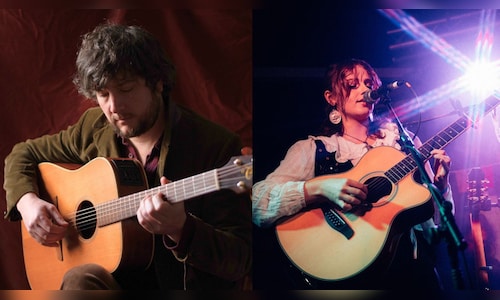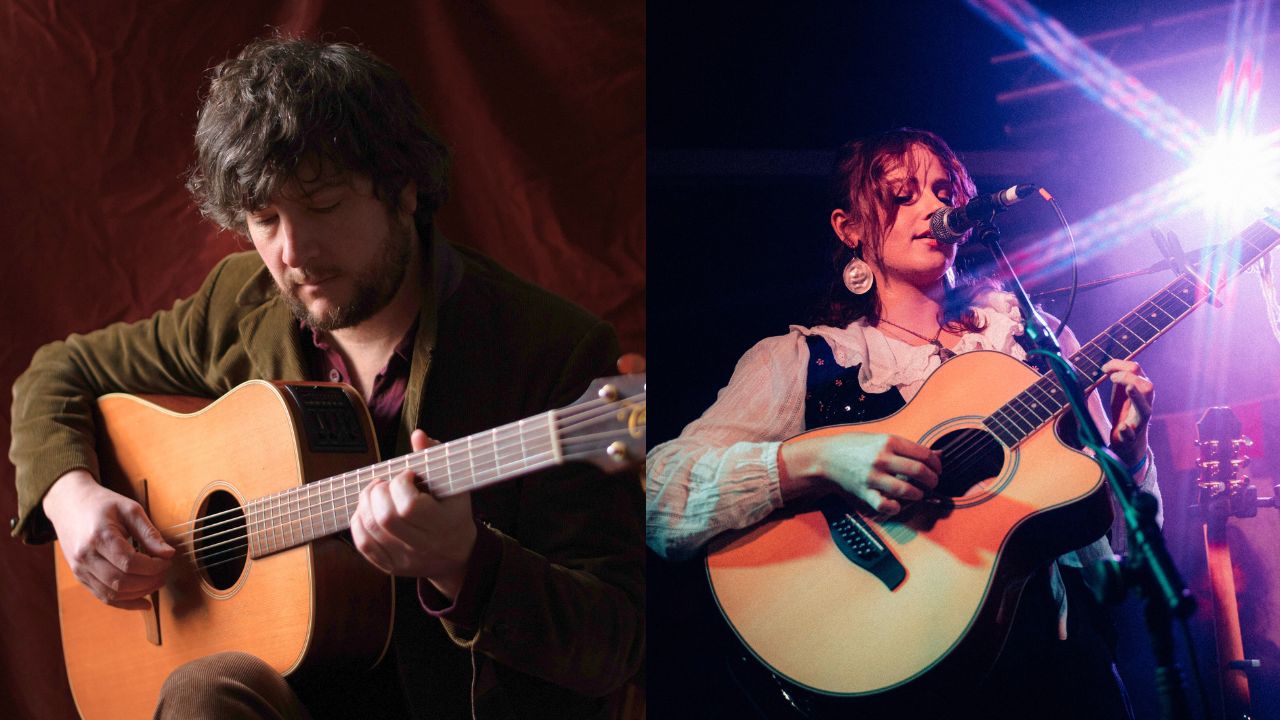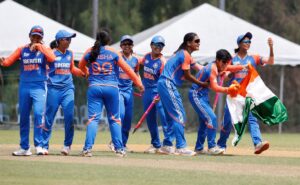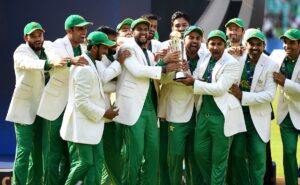

The Hornbill Festival in Nagaland, often dubbed the ‘Festival of Festivals,’ continues to be a confluence of cultures, bringing together artists and traditions from across the globe. This year, the 25th edition of the festival, saw Mari Mathias and Gareth Bonello, two celebrated proponents of Welsh folk music, blend their country’s rich heritage with the diverse traditions of India.
Roots of the journey: From Wales to Nagaland
Mari Mathias, who is in her early twenties, began her journey as a folk musician in a childhood rooted in rural Wales. She was raised by creative and artistic parents who nurtured a passion for music and cherished all genres of good music.
“I was introduced to the sounds of folk from an early age… memories of playing records from legendary and inspirational artists like Tim Buckley, Joni Mitchell, Joan Baez, Fairport Convention, Laura Marling, Johnny Flynn and many more, whom I listened to early in my childhood, sparked my passion for storytelling through music,” she says.
Gareth Bonello, who is in his early forties, began in Cardiff with classical piano and cello lessons. As a teenager, he became obsessed with rock music and taught himself to play acoustic guitar, performing at open mic nights around Cardiff before eventually graduating to live gigs in the city.
“My influences were guitar players like Jimi Hendrix, Django Reinhardt, Ernest Ranglin and jazz musicians like Miles Davis and Herbie Hancock. Later, I became fascinated by folk music and listened to a lot of Bob Dylan and the guitarists of the UK 60s folk revival like Martin Carthy, Davy Graham, Bert Jansch and John Renbourn. Welsh folk music has had a strong influence on me as well and as a result, I mainly write in the Welsh language today,” says Gareth.
The India story
Hornbill Festival marks Mari’s debut in India, an experience she was eagerly anticipating. She says she is excited to be immersed “in this vibrant atmosphere, where music, dance, and traditional crafts come together to create a unique celebration.”
Her journey to India was facilitated by the British Council and Wales International after a performance celebrating ‘90 Youth Voices’ in Cardiff.
Gareth, on the other hand, is no stranger to India. His connection with Hornbill dates back to 2013, when he performed as part of the British Council Folk Nations project, alongside the Tetseo Sisters from Nagaland and Phu Ningding from Karbi Anglong, Assam.
“The UK folk musicians performed at the Hornbill Battle of the Bands. We didn’t win but it was wonderful to hear all the great bands from all over the Northeast at the competition, visit the festival site and watch the performances of traditional Naga music and dance in the arena. When Hornbill got in touch to ask if I’d play again this year I jumped at the chance!” says Gareth.
In addition, Gareth has been working with artists from the Khasi communities of Meghalaya since 2017. He has performed at the Ziro Festival in Arunachal Pradesh; Where Have All the Flowers Gone in Manipur, a three-day music and arts festival inspired by late American folk singer Pete Seeger; and at Jodhpur RIFF in Rajasthan, alongside Rajasthani folk group SAZ.
India and Wales: Finding common ground
Gareth finds similarities between Wales and the Khasi and Jaintia Hills, highlighting the overlap in music, especially in hymn tunes and choral singing.
He says when it comes to folk music in general, there is always an overlap in themes because they are ultimately all songs about the human condition. “The scales, melodies and rhythms may be different and the way the tradition is passed on varies, but the songs are about life and death. They are the same as Welsh folk songs, the same stories told from different perspectives, and it is this that makes folk music endlessly fascinating to me. When a Khasi musician shares a song about the landscape of Meghalaya, I can respond with a song about the landscape of Wales, and we are both enriched with a deeper understanding of each other’s world as a result,” says Gareth.
Mari, who is clearly in awe of India, calls Indian music “a beautiful blossoming lotus flower,” an experience of sounds and harmony that speaks to the soul. “It not only enriches my understanding of cultural diversity but also motivates me to appreciate the beauty of collaboration and expression in the arts,” she adds.
She also plays the harmonium. When she visited Sikh and Hindu temples, Mari came across elderly women singing and playing the instrument in a sacred environment — which had a profound impact on her. “It was a privilege to have had this enriching moment of connection to their way of life and the power of music, which is universal,” says Mari.
Hornbill Festival: A global stage for local artists
The Hornbill Festival’s ability to showcase both global and indigenous talent over 25 years, is a testament to its significance in the art-culture spectrum. This edition of the festival, with the participation of artists like Gareth and Mari, underscores the festival’s enduring legacy as a bridge between cultures, celebrating diversity and innovation in the music landscape.
According to Gareth, festivals like Hornbill are essential for maintaining a healthy music scene as they showcase both artists who have achieved commercial success and the vast sea of talent that exists just below the surface. He adds that lesser-known artists benefit immensely from this kind of exposure and make good connections with other artists, which can lead to valuable support slots and new collaborations.
“Festivals like Hornbill, which shine a light on the rare and undiscovered should be treasured, they help to keep the music ecosystem alive. A thriving music scene inspires other musicians and artists of all kinds, raising the cultural bar for whole scenes, communities and even nations. It just makes the world a more exciting place,” concludes Gareth.
Mari feels festivals like Hornbill are a pivotal confluence of cultures, showcasing the rich tapestry of artistic expression and cultural heritage. “Such festivals promote social cohesion by bringing together people from various communities, fostering inclusivity and understanding. In a society often marked by divisions, art becomes a unifying force that celebrates diversity,” says Mari.
The road ahead
Gareth says he is not too bothered about genre and it’s all about how the music makes him feel. He is working on a psych-folk album inspired by folk-rock bands like Pentangle, Fairport Convention, The Byrds, Crosby, Stills Nash and Young, Nick Drake and Welsh psychedelic bands Gorky’s Zygotic Mynci and Super Furry Animals.
Mari is currently working with a band on a new album which incorporates jazz elements to traditional sounds in Wales, poetry, storytelling and new renditions of traditional folk music, with some genre-bending fusions. The album will be recorded in a live studio session in Wales and is slated for release in 2025. She has had new singles out this year inspired by ancient customs, in collaboration with other artists and bands from Wales.



